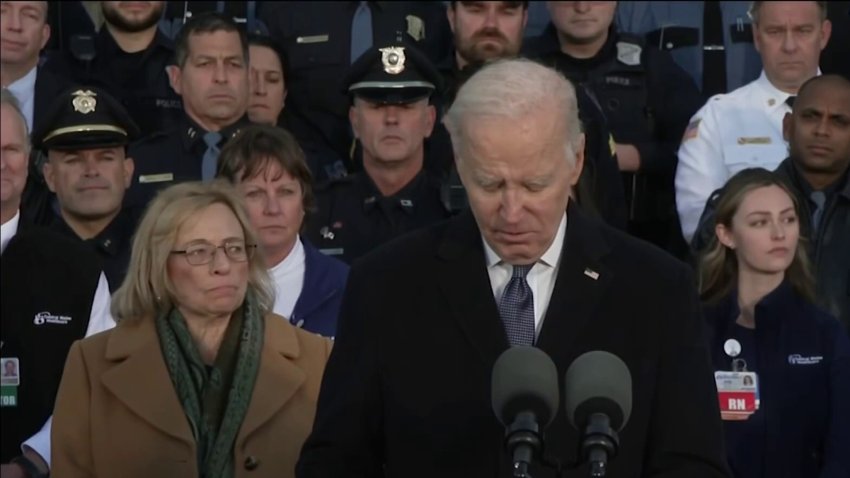Biden came to Lewiston, Maine, on Friday for what presidents do in these moments of horror and grief: lend comfort to the families of the victims and show support for a reeling community.
Two senators from Maine asked the U.S. Army inspector general on Monday to provide a full accounting of interactions with a reservist before he killed 18 people and injured 13 others in the deadliest shooting in the state's history.
U.S. Sens. Susan Collins, a Republican, and Angus King, an independent, told Lt. Gen. Donna W. Martin in a letter that it's important to understand “what occurred, or failed to occur" at the federal level, including the Army, before Robert Card opened fire at a bowling alley and bar in Lewiston.
WATCH ANYTIME FOR FREE
Stream NBC10 Boston news for free, 24/7, wherever you are. |
Fellow soldiers expressed concerns about the gunman's mental health before the Oct. 25 shootings. One of them sent a text message in September saying, “I believe he’s going to snap and do a mass shooting," according to law enforcement.
Get updates on what's happening in Boston to your inbox. Sign up for our News Headlines newsletter.
The senators view their federal request as working in tandem with an independent commission that Democratic Gov. Janet Mills is convening to explore the facts related to the shooting, including the police response.
“As we continue to grieve the needless loss of life that day, we must work to fully understand what happened — and what could have been done differently that might have prevented this tragedy — on the local, state, and federal levels,” the senators wrote.

The senators posed several questions including under what circumstances the Army reports personnel to the National Instant Criminal Background Check System, and when the Army seeks to invoke state laws to temporarily remove firearms from a soldier’s possession.
Concerns over the shooter's mental health during military training led to a 14-day hospitalization at the Four Winds Psychiatric Hospital in Katonah, New York, last summer. The worries continued after he returned home to Maine.
A deputy visited the gunman's Bowdoin home twice, once with an additional deputy for backup, to perform a wellness check in September but he never came to the door, officials said. What happened after that is unclear. The sheriff’s office canceled its statewide alert seeking help locating the shooter a week before the killings.




